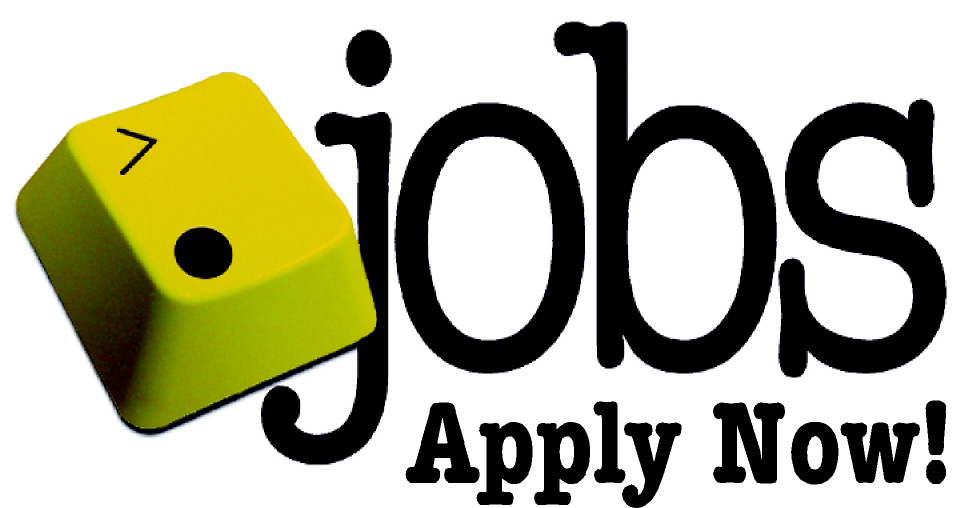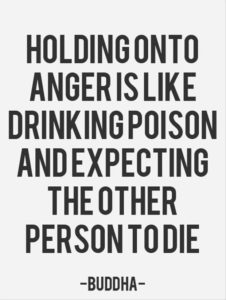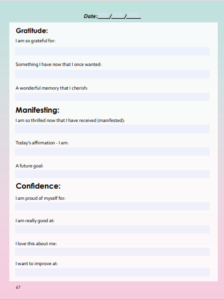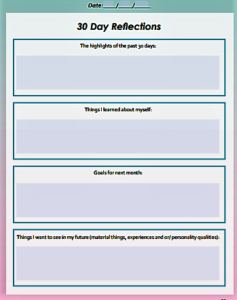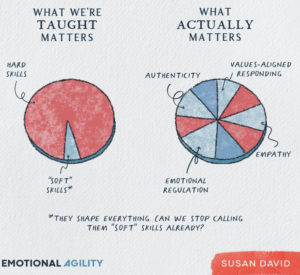Are we there yet? The question has been on the tip of the world’s collective tongue for almost two years, as we searched for a moment where we could proclaim the COVID-19 crisis over.
In 2021 — after a year that forced us to reconsider our assumptions and expectations for our lives and careers — we searched for a new path, a way to live and work that felt right and sustainable amid the ongoing pandemic.
We embraced new kinds of separation and decentralization: In the way we do our jobs, with the proliferation of remote and hybrid work; in the way we make and ship goods, with growing favor toward local supply chain hubs over global manufacturing centers; and in the way we bank, as blockchain-based finance gains steam.
No, we’re not there yet, but we have made progress. And in 2022, we’ll continue to refine and redefine this brand new world. What can we expect for the coming year?
Every December, LinkedIn editors ask our community of Influencers and creators to share the Big Ideas they believe will define the year ahead. This year, as we continue to find our way amid an unpredictable pandemic, we offer a selection of thoughts on where we go from here — at work, at home and everywhere in between.
This is by no means a complete list, and we invite you to join us! What Big Ideas do you think will emerge in 2022? Share your thoughts in the comments or publish a post, article or video on LinkedIn with #BigIdeas2022. — Scott Olster
P.S. Check out my colleague George Anders’ analysis of what we got right — and wrong — in last year’s Big Ideas predictions. And you can see our local Big Ideas for Australia, India, the U.K., pan-Europe, the Asia Pacific and the Gulf regions.
Brace yourself for Season 2 of “The Great Reshuffle”
“The Great Reshuffle” of the past year — which saw millions of workers quitting their jobs and many others contemplating a move — isn’t going away. The trend is poised to be a multi-year process, with fresh themes taking center stage in 2022.
For people in their 20s and 30s, look for professional nomading to become a more accepted way of life. Working remotely and switching locations every few months is no longer just an eccentricity of the tech-sector’s elite engineers; it’s become a viable option for job functions ranging from tele-sales to content marketing. “Work from anywhere” may also become the ultimate perk that many employees insist on.
Expect plenty of 2021’s job switchers to keep hopping, too. The U.S. Bureau of Labor Statistics’ most recent report on job tenure found that, as of 2020, employees stayed with their employers for an average of 4.1 years. Look for that number to drop below 4.0 in the future.
Who’s going to help anxious workers find the right path? All indicators point toward career counseling as a profession that’s ready to boom. One cluster of advisers will focus on people who worry that they have too many choices. Another pool will need to support people who feel trapped in a version of “The Hunger Games,” struggling to survive in a harsh, volatile labor market. — George Anders
💡 Looking for more about job searching? Follow Jessica Hernandez, Sho Dewan and Hannah Mason
We’ll enter a golden age for vaccines
Today’s slate of COVID-19 vaccines were developed at a record-breaking pace. But there’s much more to come, with even faster vaccine development and jabs that can target more than one virus in the offing.
In the short-term, researchers will continue to test more cost-effective, “tried-and-true” protein-based vaccines that could be delivered to poorer countries with less onerous storage requirements, said Brendan Borrell, author of “The First Shots: The Epic Rivalries and Heroic Science Behind the Race for the Coronavirus Vaccine.”
Longer term, “research teams are hoping to develop a ‘pan-coronavirus’ shot that won’t just protect people against all the Covid variants, but potentially other types of nasty coronaviruses as well, such as Middle East respiratory syndrome,” Borrell added.
Expect all of these efforts to get speedier. Scientists and politicians are already targeting a 100-day timeline from “lab to jab,” said Jeremy Farrar, director of London-based charitable foundation Wellcome Trust. But Farrar thinks even that is too long. He foresees cutting the timeline from genome to vaccine to just seven days, with a global rollout within 30 days. How? By identifying the 20 to 50 virus families in the animal kingdom with the greatest pandemic potential and building “a library of advanced vaccines” that can be ready with only minor alterations.
“This should be our ambition for the end of this decade — our generation’s moonshot,” Farrar said. — Beth Kutscher
💡 Looking for more on health and medicine? Follow Daniel Goldstein, Anuradha Gupta and Talya Miron-Shatz
Big Tech will rival — and even supersede — government on the global stage…
Nation states had been the primary drivers of global affairs for nearly 400 years, in charge of conducting war and peace, providing public goods, writing and enforcing laws and controlling flows of information, goods, services and people. No more. Tech giants like Meta (Facebook), Google, Amazon and Alibaba are increasingly acting as sovereigns, rivaling states for influence over our lives.
As more of the world becomes digitized, these companies’ control over the goods and services needed to run a modern society — including election integrity, telecommunication networks, cloud infrastructure, logistics capabilities, payment systems, space exploration and even national security — will deepen. Think about what happened on January 6. After rioters stormed the U.S. Capitol, it was social media companies — not law enforcement, Congress or the judiciary — that sprang into action to punish those responsible. Now ask yourself this: Who will do more to influence the outcome of the 2022 midterm elections, the President of the United States or the CEO of Meta (Facebook)? It’s telling that we’ve reached a point where the answer to that question isn’t obvious.
Tech giants’ influence will trigger plenty of backlash from leaders in the U.S., China and Europe, all of whom agree that they need to get tough on technology companies. But don’t expect any of these efforts to go all the way — in part because leaders aren’t aligned on the nature of the problem, in part because they lack the expertise and institutions to regulate Big Tech effectively and in part because they fear that overreaching could hamper innovation and growth. Which means that, at least for the near future, the power of technology companies is poised to grow beyond the ability and willingness of governments to constrain their authority. — Ian Bremmer, president at Eurasia Group
…but it will fail to fully own the metaverse
There’s a metaverse land grab afoot and, for once, not all the spoils will go to Big Tech. The next iteration of the web is arriving, and it’s leaping off of our screens. It’s the metaverse, a term that describes the 3D immersive and collaborative experiences that are already making their way into our lives. Say the word “metaverse” and most people think of a headset — Oculus, for example, or the HTC Vive — that transports us into a pixelated world in which we interact with digital avatars. But, the metaverse is far more varied, from existing augmented experiences (remember Pokemon Go?) to high-end gaming worlds.

As we embark upon the next great technology shift, the tension between closed and open platforms will continue. Just as in the shift to mobile, large technology companies will attempt to carve out as much control over this new landscape as possible. Witness the rebranding of Meta, formerly called Facebook. Just a few days later, Microsoft (parent company to LinkedIn) teased its own metaverse plans. But unlike earlier tech paradigms, the metaverse will be much more difficult to wall off and control thanks to two significant forces. The first is blockchain, which will allow metaverse participants to build and use decentralized technology, rather than rely on Big Tech players alone. The second is the artists and technologists who are laying the initial groundwork for the metaverse aren’t beholden to Big Tech in the ways they once were. Thanks to blockchain, they have a decentralized means to make money. This version of the web holds the potential to be open; one that rewards individual creators for their contributions. — Jessi Hempel
💡 Looking for more on tech? Follow Lex Sokolin, Allie K. Miller and Mary Spio
The pandemic’s next act will focus on mental health
In 2022, the world will need to reckon with the trauma the pandemic has left in its wake. Life may be normalizing, but many people are still grappling with grief, depression and anxiety. “The actual work will have to be done because we’re going to see a lot of devastation coming [in] 2022,” said Rhonda Medows, president of population health for the Providence hospital network in Renton, Wash. “I think we’re looking at a lost generation if we don’t,” she added, referring to the challenges children and adolescents faced during this time.
But the demand for mental health services is outstripping supply. With the world facing an extreme shortage of clinicians, many of whom are grappling with their own burnout, digital platforms will take center stage, even beyond the current apps linking patients and therapists.
Researchers are already trying to find biomarkers, including through genetic testing, to match people with drugs like antidepressants, which work differently in each individual. The next frontier will also include apps and wearables to help people manage their treatment, said Courtney Billington, president of Janssen Neuroscience. These tools will allow people to enter their symptoms in real-time or track vital signs that may correlate with their mental health, like heart rate. And this data could be shared with or monitored by clinicians. — Beth Kutscher
💡 Looking for more on mental health? Follow Future Cain and Melissa Doman
Frontline employees will enjoy new clout
Last fall, as Amazon ramped up its usual drive for workers ahead of the holiday shopping season, the company offered signing bonuses of up to $1,000 to attract new warehouse employees. This year, the e-commerce giant is offering as much as triple that amount.
After years of enduring stagnant pay and dreary working conditions, the world’s front-line workers in fields such as retail, hospitality and customer service could be heading into better times.
Harvard Business School’s Ryan Buell argues that smart employers will start to see the benefits of reestablishing closer human contact with customers in a post-pandemic world. This will translate into “increased compensation and improved scheduling” for the front-line workers who make this kind of rapport happen, Buell argues.
LinkedIn’s chief economist, Karin Kimbrough, goes one step further, predicting that “employees will continue to drive a harder bargain with employers.” They’ll be helped by a strong 2022 economy in which the U.S. unemployment rate could shrink to 3.5%, from the current 4.8%.
This new future will feature more vocal employees, who won’t hesitate to jump ship if they’re unhappy, says Joshua Luna, founder of Mgmt, a training and coaching organization. “The power dynamic will shift from employers and leave them pining for talent like never before,” he contends. — George Anders, Joseph Milord, Andrew Seaman
💡 Looking for more on frontline workers? Follow Amos Olajimbiti and Natoya Champion
Our cities will start to run on crypto
As national governments around the world face scrutiny over their efficiency and trustworthiness, many state and city governments have begun to step up and experiment with new approaches to some of their stickiest challenges. Enter crypto, which governments have begun to embrace to finance municipal services, fund new programs and pay government workers.
Miami has struck a deal with nonprofit CityCoins, which allows users who mine new tokens to earn part of the cryptocurrency they generate and donate the rest to a city of their choosing. And Mayor Hillary Schieve of Reno, Nevada has proposed a plan that includes selling non-fungible tokens (NFTs) to support public art and using decentralized autonomous organizations to sell crypto-based stakes of city-owned properties to investors.
What’s the benefit of adopting a blockchain approach to government? It puts transactions into public view, boosting transparency. And its automation of most processes can reduce red tape and the likelihood of errors.
“Integrating blockchain-based organization formats … will allow institutions to manage public goods in a much more efficient and transparent way, reduce coordination costs and can drastically speed up the decision making process,” says Niek Van der Voort, COO of MetaMundo and DAO builder. “The number of organizations that will adopt crypto to address public challenges will grow exponentially.” — Liza Jansen
💡 Looking for more on crypto? Follow Alison McCauley and Chris McIntyre
The 4-day work week will become a competitive advantage
During The Great Resignation, millions of people have been doing more than walking away from their jobs. They’ve been rethinking the role that work plays in their lives. There’s a growing number of talented, motivated people who are interested in doing a great job in less time.
For decades, leaders have equated commitment with long hours. At long last, more are recognizing that you can excel in your work and care about your workplace without making it the dominant priority in your world. From Microsoft Japan to Semco in Brazil and the government of Iceland to Perpetual Guardian in New Zealand, organizations are figuring out how to make the 4-day work week work.
Before COVID, it was a novelty. In 2022, the 4-day work week may start to become a competitive advantage for companies. Companies that offer 50 extra days of freedom a year will have an easier time attracting and retaining talented people. If you’ve decided that there’s more to life than work, it’s hard to imagine a more enticing and exciting proposition.
Every workplace has a gravitational field. Leaders who take the 4-day work week seriously will draw stars into their orbit. — Adam Grant, organizational psychologist at Wharton, host of the TED podcast WorkLife and author of “Think Again: The Power of Knowing What You Don’t Know”
We’ll begin to look at algae — and other “blue foods” — in a whole new way
With the global population expected to hit 10 billion by 2050 and climate change adding layers of uncertainty to our food production system, a food crisis is looming. “Blue foods” — fish, aquatic plants, mussels and algae — may offer a key solution.
“Blue foods” offer both nutritional and environmental benefits, making them an ideal potential source for future food needs. Algae’s protein content, for example, is higher than conventional sources such as meat, poultry and dairy products; and it can be cultivated without freshwater or arable land. Seagrass is capable of capturing carbon 35 times faster than tropical rainforests, can transform abandoned salt marshes into flourishing habitats and can even be used as an alternative to rice.
“Even though aquaculture production has continued to grow in recent decades … the potential of the world’s seas and oceans to provide healthy and sustainable food remains largely unused,” says Sander van den Burg, researcher at Wageningen University and Research. Van den Burg sees a change afoot in 2022, where we’ll gradually see more blue foods available at local grocers.
To reap the full environmental benefits of this food source, we’ll need to let go of several current industry practices, says Van den Burg. He advocates for circular techniques, like using algae instead of fish for feed and finding new uses for scraps and other byproducts in the food production process. — Liza Jansen
Salary talk will come out of the shadows
Fierce competition to recruit talented workers combined with a growing push to hold companies accountable for their diversity promises will force employers to finally open up about who is earning what, once and for all.
Pay rates were once an opaque internal mystery at offices and the subject of much speculation, gossip and resentment. But as the push for equity at work gains momentum, pay transparency will begin to go mainstream, according to Diane Domeyer, a managing director at human resources consultancy Robert Half.
For several years, companies like Whole Foods and Netflix have offered all employees access to their colleagues’ salaries. But the current impetus for pay transparency stems from growing momentum around addressing gender and racial pay inequities. “Societal desire to close the wage gap for protected groups is what’s really at the heart of it,” Domeyer says.
Many U.S. states now prohibit companies from discussing pay history with prospective employees during recruitment, to push companies to pay based on current market rates. Salary transparency is a logical next step. “Without it, people will always feel they aren’t being paid enough,” Domeyer says.
Some employers fear this kind of openness on pay could both breed resentment among colleagues and help rivals poach their workers. Domeyer contends the positives outweigh the negatives and that companies will soon be compelled to act on transparency anyway. “Organizations have an advantage in being ahead of legislation and demonstrating to employees they’re about equity and inclusion.” — Andrew Murfett
Retailers will embrace old — and very new — tactics to compete against Amazon
The pandemic remade retail. Stores shut their doors, many of them for good, and the shift away from physical shopping accelerated. All of this spelled great news for online retail giants like Amazon. But it left many legacy retailers scrambling. In 2022, these retailers will fight to win shoppers back, through a combination of old and very new school tactics.
Customer service typical of the physical shopping experience will proliferate online, including concierge-style live chat services and new tech to accurately predict size and shopping habits. Offline, retailers will adopt white-glove return services, sending couriers to pick up unwanted items at shoppers’ doorsteps. And we’ll see a growth of partnerships with external firms to do all of this, says retail analyst Richard Lim.
The shift from physical retail won’t stop there. More retailers will embrace virtual and augmented reality in 2022, allowing customers to interact with products in environments that go far beyond digital replications of a store. In November, Nike announced it had teamed up with online gaming platform Roblox to create a virtual world where users can play sports-themed mini-games and dress their avatars in Nike gear.
“The metaverse may do more to change retail than anything since the physical store,” says Cate Trotter, head of trends at consultancy Insider Trends. “It’s not about creating virtual interpretations of the store. It’s about uncoupling retail from the store and reimagining it entirely.” — Siobhan Morrin
💡 Looking for more on the future of retail? Follow Ian Scott, Imran Ansani and Sumreen Hashmi
Manufacturing will head home — and get smarter
The pandemic, volatile swings in demand, a wave of extreme weather and shortages of both workers and cargo space created a perfect storm for the global supply chain. And in this age of consumer impatience, we are confronted with a rare experience: we have to wait days, weeks, months to receive our sneakers, cars and toys. (Christmas is coming!)
Experts believe the crisis will extend beyond 2022. In the meantime, the supply chain will undergo a revolution, with businesses focusing less on cutting costs and more on making sure they have the capacity and resilience to weather disruption. Companies will bring their operations closer to home. Last year, some 75% of companies said that they were reshoring operations to their home bases or to neighboring countries, according to a survey of 3,000 firms by Bank of America.
To keep costs under control, more companies will start building “smart factories,” with an emphasis on automation, cloud platforms and other technologies, argues Stefano Elia, professor at Polytechnic University of Milan in Italy. “[This] will allow firms to reduce costs, improve quality and, above all, trigger the demand of skilled labour in their home country or region.”
Leading manufacturing hubs will not take this news lying down, though. “China and other similar countries will put in place political and economic measures to increase the attractiveness of their economies,” says Elia. “I anticipate an international competition.” — Virginia Collera
Diverse hiring will become multi-dimensional
In 2021 — in the wake of the 2020 murders of George Floyd and Breonna Taylor — companies promised to take diverse hiring seriously. In 2022, the bar will be raised and companies’ actions will be judged based on how they approach racial and gender equity in combination, not as siloed efforts.
Some 96% of U.S. companies report the gender representation of their employees at all levels, and 90% report representation at senior levels, according to LeanIn and McKinsey’s Women in the Workplace report. But only 54% of companies track gender and race/ethnicity — i.e. Black or Latina women in senior leadership. This renders women of color “invisible,” says LeanIn CEO Rachel Schall Thomas.
Will companies rise to the challenge? The best talent will demand it. Some 50% of multicultural women are thinking about leaving their jobs in the next two years because they believe both their gender combined with their race make it harder to advance. “We need to become co-conspirators,” said Ella Bell Smith, the author of “Our Separate Ways, Black and White Women and the Struggle for Professional Identity.” “If all women don’t advance, no one group is going to advance in the long term.” — Caroline Fairchild
💡 Looking for more on diversity, equity and inclusion? Follow Raven Solomon, Yvonne Alston and Patrice M. Palmer
Our commutes will become easier (or disappear altogether)
Wake up. Make a pot of coffee. Do some work. Drop off the kids. Go to the office. Pick up the kids. Finish work. The rise of the “hybrid workday” — in which we work from home and the office — means we’re not all commuting at the same time anymore.
Flexible work is now a fact of life: 93% of knowledge workers globally want the freedom to decide where and when they do their job. And since offices have reopened, people are showing up later and leaving earlier, according to data from MillerKnoll. The shift away from traditional rush hours will spread traffic out more evenly throughout the day and give transit systems some much-needed relief, says Ryan Anderson, vice president of global research at MillerKnoll.
But as good as the end of rush hour sounds, we should think bigger, says University of Amsterdam’s Marco te Brömmelstroet. Perhaps we should discard the commute as we know it altogether? “To improve quality of life, we need to become less dependent on mobility and more committed to local proximity.” Making work — even in an office — just a walk or short bike ride away may be in store for more of us. Barcelona’s Superblocks and the 15-minute city in Paris offer hints at what’s to come. — Pieter Cranenbroek
The face of entrepreneurship will change
The last 18 months have seen an explosion of new businesses around the globe, as innovators look to disrupt old models and carve out solutions for a post-pandemic world. But while the C-suite has made strides towards diversifying, the world of entrepreneurs has barely budged. Just 2.2% of venture capital funding went to female-founded companies in the first eight months of 2021, according to Crunchbase. Black entrepreneurs only received a small fraction — just over 1% — of U.S. venture capital funding.
Will 2022 be the year we see meaningful change in startup land? Signs point to yes. More early-stage investors have added diversity clauses to their term sheets, and major players like Softbank have begun to set up specialized funding programs to support diverse founders.
Michele Romanow, co-founder of Clearco, predicts a paradigm shift in funding, as “technologies that democratize wealth-building opportunities and fix our broken distribution system of capital become the default option.” More VCs may turn to AI to identify promising startups, placing an emphasis on business fundamentals over founder demographics, she says. Such tech may help root out the kind of initial biases that have slowed down diversity efforts. — Riva Gold
💡 Looking for more on entrepreneurship? Follow Matt Higgins, Lauren Maillian and Laura Mignott
We’ll be cleaning our own hotel rooms
During the travel downturn over the past two years, many hotels dialed back on their pre-pandemic offerings to cut costs. In cities where hotels were used for quarantine programs, guests had to change their sheets and take care of basic housekeeping while in isolation. Hotels grappling with staff shortages may look to make these changes permanent.
We may soon see the rise of “self-sufficient hotel guests,” says Singapore-based travel journalist Raini Hamdi, where guests are in charge of making their beds, washing their cutlery and more — perhaps in exchange for hotel vouchers or discounts.
We’re already seeing these shifts in the U.S., with Omni Hotels & Resorts launching a program in 2020 where they donated to charities when guests opted out of housekeeping services. “This isn’t about being environment-friendly,” Hamdi says. “It’s about … whether guests can play a part, and be rewarded, for helping hotels lower their cost structure.” — Yunita Ong
Teachers (and parents) will say goodbye to public schools
The traditional U.S. educational system took a big hit in 2020, with enrollment in public K-12 schools dropping to its lowest levels in at least a decade. What might at first have seemed like a one-year blip is now looking more like a lasting change of heart by both parents and teachers. Private alternatives and homeschooling are both ready to pick up the slack, amid widespread frustration over the public system’s handling of all the challenges associated with COVID-19.

“America’s teacher shortage will outlast the pandemic,” Axios reporter Erica Pandey recently predicted. Low pay, vaccine battles and the frustrations of trying to teach in a socially distanced world are driving a sizable exodus from local and state education jobs. New teachers aren’t being trained fast enough to replace them. Meanwhile, homeschooling rates are likely to stabilize at far higher levels than the U.S. saw in pre-pandemic days. Black families in particular are showing the greatest interest in homeschooling, according to Census Bureau data. Families making the switch may feel encouraged by experts like British education researcher Sara Bubb, who found that when students were driven into various forms of homeschooling during pandemic lockdowns, learning rates actually increased. — George Anders
💡 Looking for more on education? Follow Adam Geller, Monica Kochar and Ross Morrison McGill
Athletes will flex their muscle over teams and leagues in fresh ways
In recent years, the world’s top professional athletes have grown more emboldened when it comes to decision-making about where and under what conditions they play, and how teams and leagues operate. Expect this sway to only grow in the coming year.
Lucrative television deals have translated into seismic pay increases for top athletes. And social media has offered athletes a direct line to fans.
NFL superstar players now expect to be consulted by team owners about coaching decisions, recruiting and even executive choices. And last year, the NBA’s James Harden wanted to leave the Houston Rockets — despite the team giving him an active voice in all of its major strategic decisions. When Houston declined to trade him, he turned up late to camp, flouted COVID protocols and publicly criticized the team. By January 2021, he was a Brooklyn Net.
This extends to social causes. NBA players put the Black Lives Matter movement in the spotlight in 2020 at the Orlando basketball bubble. Euro 2020 soccer players effectively banished soft drinks from news conferences at the championship.
In previous times, such efforts would be squashed by team and league execs. But social media has shifted the narrative in the player’s favor. “New channels of communication allow us to transfer our message without distortion,” says Iker Casillas, former goalkeeper of Real Madrid and Spain national team and executive of the Real Madrid Foundation.
With the Winter Olympics in China and the FIFA World Cup in Qatar this coming year, there will be no shortage of opportunities for players to make their voices heard. The heat is on. — Marco Valsecchi
💡 Athletes to follow on LinkedIn: Odell Beckham Jr., Malcolm Brogdon and Tim Tebow
To curb emissions, we’ll shift focus from cars to houses
The electric car has become a green badge of honor, driving Tesla’s market value above a trillion dollars. But for some of us, electrifying our home would reduce our greenhouse gases even more than electrifying our cars: You have to commute more than 30 miles a day in a car to produce as much carbon dioxide as a Sacramento home powered by mixed fuels.
Electrifying a home would immediately reduce its emissions by 45% and by 82% over time, as electricity grids get cleaner. Sixty-one percent of U.S. homes are still heated or cooled by burning fossil fuels within the home, a practice that a decade from now might seem like leaded gas or the smoking section of an airplane. Increasingly, homes and buildings will be warmed and cooled by electric heat pumps. Kitchens will be cleaner and safer with magnet-powered ranges and, eventually, refrigerators.
It’s a big change, but the good news is we’ve done this before. In the 1950s, U.S. homes switched en masse from being powered by coal and wood to natural gas. Now, most builders realize that any home or office tower powered by burning fossil fuels is obsolete the day it’s permitted. New companies are emerging to build homes from different materials and to retrofit the homes we live in today, so that we’re more comfortable and our carbon footprint is much smaller. — Glenn Kelman, president and CEO at Redfin
The world’s ultra-wealthy will declare self-sovereignty
The world’s wealthiest people have been slowly breaking away from their countries of citizenship over the course of several years, with gradual increases in asset offshoring and international travel. But the pandemic and rising geopolitical risks — particularly tied to the issues of taxes and crypto regulation — are pushing more people than ever to establish residency abroad or pick up additional citizenships. Larry Page, Peter Thiel and Eric Schmidt have joined this trend. But for every recognizable name, there are dozens of others who are quietly doing the same.
In 2022, this shift will go into overdrive for several reasons. Many of the world’s billionaires — who saw a $5 trillion dollar increase in wealth this year — are shielding their wealth from taxes by establishing residency abroad. Second, a new class of crypto-wealthy, who tend to be avowedly anti-government, are setting up shop in countries that are less likely to regulate crypto than the United States and the EU. And finally, paying as much as $23 million for another passport or two can start to sound reasonable to a billionaire living in a pandemic-era world where their mobility is largely determined on their access to a private jet and their citizenship.
These billionaires’ soft landings come at a hard cost, with losing nations deprived of tax revenue to pay for public infrastructure, education and health systems. — Alec Ross, author of “The Raging 2020s: Companies, Countries, People – and the Fight for Our Future”
Hustle culture will come back with vengeance
As the pandemic’s intensity begins to recede and restrictions ease, many will feel finally free to return to the relentless striving of yore. So, don’t let Instagram fool you. Even as influencers denounce the hustle — promising that life is no longer all about work and touting the importance of mental health — they are working harder than ever. They’re pairing the increased productivity that came from abolishing the lines between work and home during the pandemic with the newfound freedom to travel again. And they’re getting out to their offices, conferences and business meals. The latest round of leadership books coming out of Silicon Valley offers further proof that the hustle never died: In January, Frank Slootman, CEO of high-growth software startup Snowflake, will release “Amp it Up: Leading for Hypergrowth by Raising Expectations, Increasing Urgency, and Elevating Intensity.” You may like it, you may hate it, but our work culture still places high value on those who want to #CrushIt. — Jessi Hempel
Colleges will shift away from campuses, and the four-year degree
Students skipped out on college in droves during the pandemic: undergraduate enrollment has fallen 7.8% since the fall of 2019. To get students to return to school — or come at all — colleges will need to make their pandemic-era flexible options permanent and adopt new approaches to education.
Higher education is known for its rigid schedules and curriculum. But during the pandemic, schools embraced flexibility. Classes were redesigned with a mix of face-to-face and online content. Textbooks were exchanged for digital materials. The academic calendar was reimagined with fewer breaks, and campuses welcomed only certain groups of students during particular weeks. Colleges can continue to offer opportunities to mix-and-match in-person and online courses. And the academic calendar could remain flexible, with “low-residency” options.
Georgetown University R&D leader Randy Bass is even thinking about revamping the college degree itself, where it’s expected that students earn a degree at their own pace. Instead of a 2- or 4-year degree or a bachelor’s or master’s degree, he calls it a “3-to-5 flex.” “We have a flex system now by chaos and negligence,” he says. “Some kids go faster, some kids go slower, but it’s not with any kind of intentionality.”
With a demographic cliff coming in the middle of this decade as the number of high-school graduates falls off, providing something different is the only way all but the biggest brand names in higher education will survive. — Jeff Selingo, author of “Who Gets In and Why: A Year Inside College Admissions”
Read more: Education’s Big Idea in ’22: Continual, Always On, and Flexible Learning
💡 Looking for more on higher education? Follow Doug Lederman and Nancy Paul
We’ll drive on plastic roads
The world’s highways and roads have seen better days. Rising traffic and the effects of climate change have battered this critical infrastructure, with some 27% of all roads and railways worldwide exposed to natural disasters, such as floods and earthquakes. The damage comes at a hefty price, to the tune of between $3.1 billion and $22 billion per year, according to Nature.
One of the world’s biggest environmental thorns — plastic — may help roads weather the coming storms.
Roads made of plastic — the kind that would otherwise end up in an incinerator — are easier to build and better able to cope with heavy rainfall, explains PlasticRoad co-founder Anne Koudstaal. “Plastic roads can store around 300 liters of water per square meter, a multiple of most asphalt roads.”
Plastic roads last longer, are easier to repair and are, unlike asphalt, easy to recycle. It would also put the world’s surplus of plastics to good use, says Doug Woodring, founder of the Ocean Recovery Alliance. “I believe plastic roads, if created at scale, will offer an opportunity to absorb hundreds of thousands of tons [of plastic], almost overnight.” — Arnoud van der Struijk
💡 Looking for more on sustainability? Follow Cody Simms and Peju Adebajo
Move over Hong Kong, Singapore is the new APAC darling
Hong Kong has long been the crown jewel of finance and technology in the Asia-Pacific region, particularly for international companies looking to expand into high-growth markets like China and India. Singapore held a similar role for firms with an interest in southeast Asia.
That dichotomy will be turned on its head in 2022, with Singapore taking the helm as the city of choice for international companies operating in the Asia-Pacific region.
A 2020 national security law passed in Beijing essentially brought an end to Hong Kong’s independence from mainland China, diminishing the city’s allure to multinationals. In 2010, there were 6.1 multinational firms for every Chinese company in Hong Kong. That ratio narrowed to 3.1 in 2020, according to data from CBRE.
Singapore was already on the rise in 2017, as protests in Hong Kong put the city on lockdown. But the pandemic proved to be the final push in its favor. Hong Kong is operating under a zero-COVID policy, with strict protocols on border crossings and a mandatory 21-day quarantine. This has made business travel close to impossible.
Singapore, meanwhile, is opening its quarantine-free travel to more countries. To further entice multinational companies, Singapore has rolled out tax incentives, including one that offers anywhere from a 5% to 10% tax break to companies that locate global or regional headquarters in the city-state. Expect more firms to take advantage and go all-in on Singapore. — Jordyn Dahl
💡 Looking for more on business in Asia? Follow James McGregor and Yunnan Chen
There’s no housing bubble — and that spells trouble for small cities
Home price increases will slow significantly in 2022 due to rising interest rates. But don’t expect a major drop in home values. Long after the price of most other assets comes back down to earth, home prices will be way above pre-pandemic levels. The world just doesn’t have enough houses, or enough home-building capacity. Coming into 2021 with a 3.8 million housing unit shortfall, the U.S. is building less than 1 million single-family homes each year.
In 2021, home prices rose by more than 40% year-over-year in cities like Austin, Texas and Boise, Idaho, as professionals taking advantage of new remote-work policies opted to leave the big city. Thanks to this migration, housing-driven economic anxiety once reserved to major metropolitan areas has expanded far beyond, both in the U.S. and around the world.
A family moving from California to Idaho suddenly feels richer, regardless of whether their new home costs $550,000 or $400,000. But that price jump makes the rest of Idaho feel poorer. And not everyone buying one home is putting another up for sale. The trend that initially set off the pandemic housing boom, relocation, is being overtaken by an increase in second-home demand, now 50% to 100% above pre-pandemic levels. High housing costs will keep wages rising, and politicians who once wouldn’t be caught dead siding with builders will be fighting tooth and nail to bring new developments to their cities. — Glenn Kelman, president and CEO at Redfin
NFTs will shake up the mortgage market
Much of the conversation around non-fungible tokens in 2021 has been around its use in digital art sales, with images of cartoon apes selling for $24.4 million amongst others. But NFTs — digital tokens that represent ownership of assets and can be traded on blockchain exchanges — are set to infiltrate many more areas of our lives and shake up our understanding of ownership.
Take the mortgage market. Decentralized mortgage lender Bacon Protocol recently issued its first seven mortgages as NFTs, collectively worth $1.5 million, offering investors and borrowers a new entry into the housing market.
Using NFTs allows lenders to bypass big banks or other intermediaries, along with their associated costs. This can help reduce mortgage rates. And the use of blockchain-based “smart contracts” can automate the approval process, setting borrowers up with loans more rapidly.
“On-chain transactions via smart contracts are not contingent on trusting any institution or individual,” says Elijah Johnston, founder of NFT-venture studio Modern Mantra. “This means a mortgage can be owned by an individual, multiple individuals, or a DAO (decentralized autonomous organization), rather than by one large bank determining mortgage rates and terms. Regulation, however, is a cloud of uncertainty that looms over all of this.” — Liza Jansen
Buy Now, Pay Later will challenge credit cards’ supremacy
In 2022, Buy Now, Pay Later (BNPL) will become a formidable challenger — even a replacement — to credit cards among consumers. BNPL has given new purchasing power to millions of people with limited access to credit — from young adults to gig workers, to historically marginalized communities and the underbanked — because it doesn’t require a credit check, it’s interest-free (as long as you pay on time) and you can use the service even if you don’t qualify for a credit card.
With the closing of brick-and-mortar stores, the pandemic caused a surge in online shopping, skyrocketing shoppers’ use of BNPL to spread their payments out over time without interest for both big ticket items and smaller purchases. For many individuals who experienced a decline in income, the ability to divide purchases into four smaller payments every two weeks — rather than making one single, large payment — made a huge difference.
With the proliferation in BNPL, it will be critical for consumers to stay educated about the risks associated with financing their purchases through the service. If you aren’t careful, BNPL can seriously damage your bottom line, so it’s important to keep track of your payment due dates, understand that it doesn’t help you grow your credit score and to not overspend. — Carrie Schwab-Pomerantz, president and board chair at the Charles Schwab Foundation
The sustainable investing backlash will arrive
The environmental, social and governance (ESG) moniker has done its part in challenging the Gordon Gekko mentality of profit-over-all and has put social awareness onto the business agenda.
But whistleblowers from investment firms like BlackRock have begun to question sustainable investing, calling it a “mirage,” and critics are calling for clearer definitions and standards. As trillions of dollars flow into the sustainable investing movement, participants have begun to complain that there is no way to compare one green investment against another. Expect a reckoning in 2022.
“We are heading for a new phase of climate-aligned investing,” writes Huw van Steenis, senior adviser at Swiss bank UBS, in the Financial Times. “Investors will increasingly be able to construct comparable metrics on carbon footprints, throughout the entire value chain and across a whole portfolio.”
With better data, investors will be able to hold boards accountable. They will be joined by regulators around the world, who are starting to “turn the screw” on financial firms — from investment managers to banks to insurers — who are engaging in greenwashing. At stake is an “avalanche” of capital now seeking sustainable investments. Next year, the finance industry will be forced to separate the ESG wheat from the chaff. — Pieter Cranenbroek
💡 Looking for more on finance? Follow Jay Lipman and Saira Malik
Successful organizations will cast aside their cynicism
Times of adversity leave scars on us, but they also have a way of teaching us what matters. In a post-pandemic world, employees will be moved more by meaning. Right now, many organizations aren’t keeping up, as they continue to focus on short-sighted, bottom-line outcomes at the expense of human connection. This has led to a rising tide of “organizational cynicism” — employees’ sense that their workplace is competitive, individualistic and greedy. Cynicism does pervasive damage to the workplace, stifling collaboration, dissolving cohesive cultures and killing creativity and drive. The Great Resignation shows no signs of slowing down, and organizations that cannot overcome cynicism will face existential threat in the years to come.
But if cynical beliefs can become self-fulfilling, so can more hopeful ones. Ernest Hemingway once wrote, “the best way to find out if you can trust somebody is to trust them.” When leaders start with trust instead of suspicion, their employees step up and organizations thrive. — Jamil Zaki, professor of psychology at Stanford University and author of “The War for Kindness”
What will you be watching in the year ahead? Share in the comments or publish a post, article or video on LinkedIn with #BigIdeas2022.
